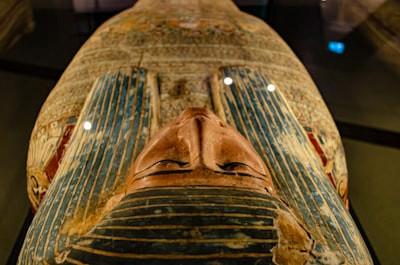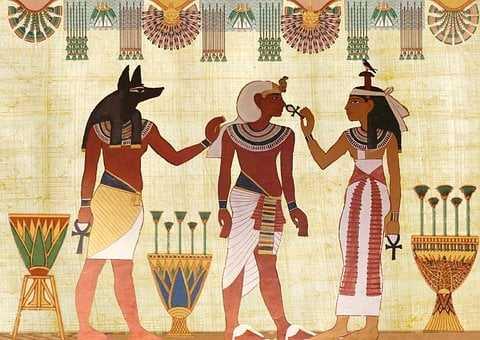Curse of the Mummy
Curated from: nationalgeographic.com
Ideas, facts & insights covering these topics:
2 ideas
·169 reads
2
Explore the World's Best Ideas
Join today and uncover 100+ curated journeys from 50+ topics. Unlock access to our mobile app with extensive features.
Mummies and the "curse" concept
Movie mummies are known for riches and a nasty curse. However, Hollywood didn't invent the curse concept.
- Egyptologist Dominic Montserrat believed that a lively stage show in which real Egyptian mummies were unwrapped inspired writers to pen tales of mummy revenge.
- Egyptologist Salima Ikram believes the curse concept did exist in ancient Egypt as part of a primitive security system. Some early non-pyramid tomb walls (mastaba) in Giza and Saqqara were inscribed with curses meant to terrify those who would desecrate the resting place.
12
98 reads
Egyptian mummies: tomb toxin threat
Some suggested that the pharaoh's curse was biological in nature.
- Lab studies have shown some ancient mummies carried mold, including Aspergillus niger and Aspergillus flavus, which can cause congestion or bleeding in the lungs.
- Bacteria such as Pseudomonas and Staphylococcus may also grow on tomb walls, causing lung problems.
However, the idea that an underground tomb, after 3,000 years, would have some microorganism in it that would kill somebody weeks later is highly unlikely.
9
71 reads
IDEAS CURATED BY
Cory Sinclair's ideas are part of this journey:
Learn more about personaldevelopment with this collection
How to challenge assumptions
How to generate new ideas
How to break out of traditional thinking patterns
Related collections
Similar ideas
4 ideas
3 ideas
Your guide to Egypt’s sun queen Nefertiti
historyextra.com
6 ideas
How we deciphered Ancient Egyptian hieroglyphs
sciencefocus.com
Read & Learn
20x Faster
without
deepstash
with
deepstash
with
deepstash
Personalized microlearning
—
100+ Learning Journeys
—
Access to 200,000+ ideas
—
Access to the mobile app
—
Unlimited idea saving
—
—
Unlimited history
—
—
Unlimited listening to ideas
—
—
Downloading & offline access
—
—
Supercharge your mind with one idea per day
Enter your email and spend 1 minute every day to learn something new.
I agree to receive email updates

